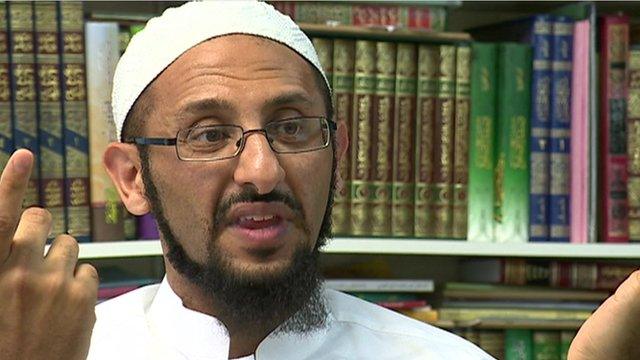Third jihadist in Isis video is from Aberdeen
- Published
The news has stunned people in Aberdeen, as James Cook reports
A third British man in a recruitment video for the Islamic militant group Isis is from Aberdeen, the BBC has learned.
The man has been named locally as Raqib.
The 13-minute video, There Is No Life Without Jihad, emerged on Friday, posted by accounts linked to Isis.
Two of the six fighters shown in the film urging Muslims to join a holy war, have been identified as Nasser Muthana and Reyaad Khan from Cardiff.
The footage emerged after militants led by Isis made rapid advances through Iraq in recent weeks.
The video shows them urging other British Muslims to join their war.
The men are believed to be among 500 Britons fighting in the conflict in Syria.
Now the BBC has been told that a third Briton in the film grew up in Aberdeen, although he was originally from Bangladesh.
He is identified in the video as "Brother Abu Bara' al Hindi".
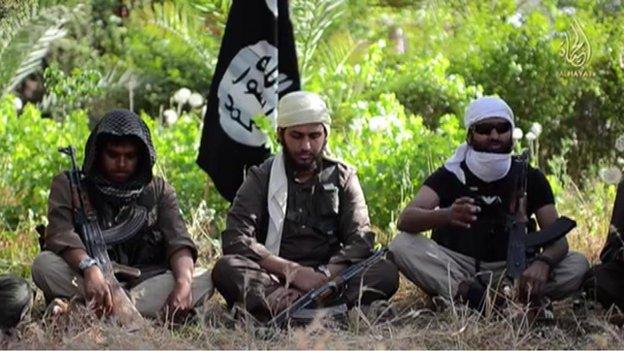
Reyaad Khan (l) Nasser Muthana (c) from Wales are also shown in the video
In the video, he says: "Are you willing to sacrifice the fat job you've got, the big car you've got, the family you have?
"Are you willing to sacrifice this for the sake of Allah? Definitely! If you sacrifice something for Allah, Allah will give you 700 times more than this."
Later in the video, he says: "All my brothers living in the west, I know how you feel.
"When I used to live there, in the heart you feel depressed. The cure for the depression is Jihad."
One former acquaintance spoke of his shock at seeing the man sitting with other self-declared jihadists, holding a gun, and urging other people from the west to take part in jihad.
Fighting abroad
The former acquaintance, who does not want to be named for fear of retribution, said the man had regularly been in trouble as a young teenager.
He said Raqib later calmed down and had been more "humble" after becoming increasingly religious.
The acquaintance said he could not understand how a young man who had grown up in Aberdeen had ended up fighting abroad.
He said that no-one he had spoken to could believe it when they saw Raqib in the propaganda video.
"I was shocked," he told the BBC, adding "it seemed utterly mad".
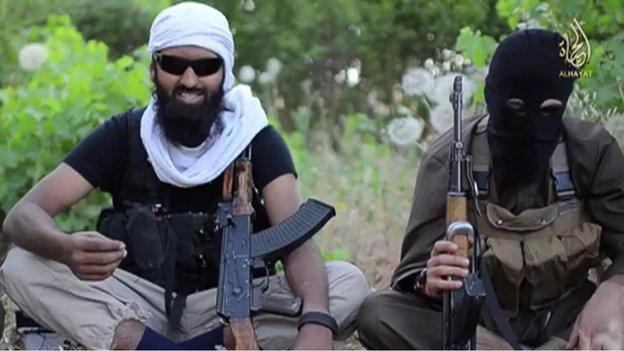
The men are believed to be among 500 Britons fighting in the conflict in Syria
The acquaintance said that he believed Raqib had moved to the UK from Sylhet District in north eastern Bangladesh some years ago.
"He came here when he was a younger child," he told the BBC.
"He went to primary and secondary school here.
"After that he was around in Aberdeen. He was a bit arrogant.
"A bit aggro, maybe something to prove. He ended up in a lot of fights.
"To learn he's accepted religion in such an extreme way is a bit shocking. Shocking because he's a youth from Aberdeen who's ended up somewhere like that."
He said he was worried that other young people would be enticed to follow the same path and insisted that he had never heard anything that would encourage radicalism at either of Aberdeen's mosques.
The man said that, when he was younger, Raqib had enjoyed drinking alcohol and going to nightclubs and was often involved in fighting.
If any trouble or racial abuse came his way, he "sorted it out with his fists", he said.
He said he had not seen Raqib for the past couple of years and believed that his family had moved to Leicester.
Ibrahim Alwawi, from Aberdeen Mosque, said: "We, as a Muslim community in the city of Aberdeen, are shocked like everybody else.
"We are co-operating with the authorities as we usually do."

Islamic State of Iraq and the Levant (Isis)
In 60 seconds: What does Islamic State want?
Isis grew out of an al-Qaeda-linked organisation in Iraq
Estimated 10,000 fighters in Iraq and Syria
Joined in its offensives by other Sunni militant groups, including Saddam-era officers and soldiers, and disaffected Sunni tribal fighters
Exploits standoff between Iraqi government and the minority Sunni Arab community, which complains that Shia Prime Minister Nouri Maliki is monopolising power
Led by Abu Bakr al-Baghdadi, an obscure figure regarded as a battlefield commander and tactician

- Published23 June 2014
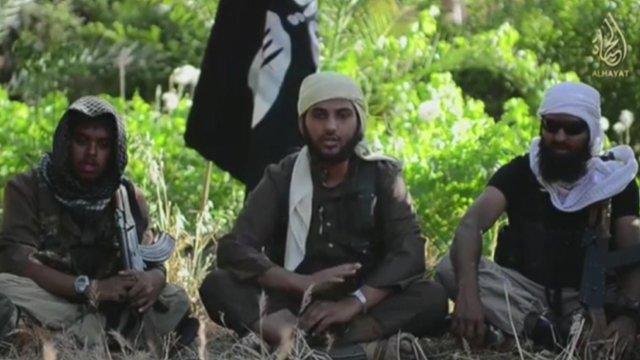
- Published22 June 2014
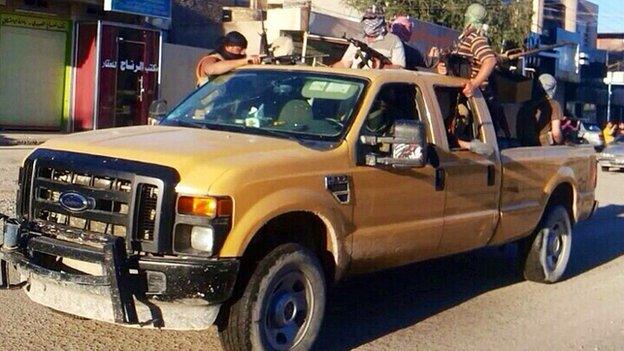
- Published21 June 2014
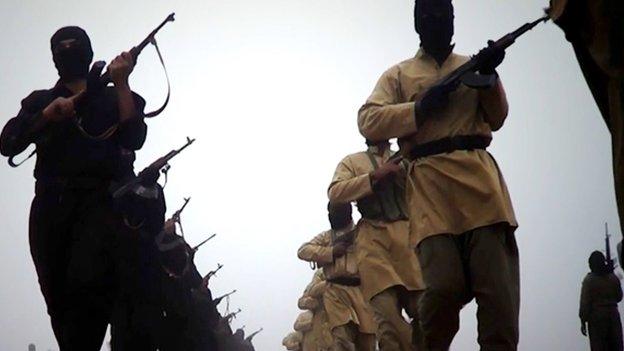
- Published21 June 2014

- Published2 August 2014
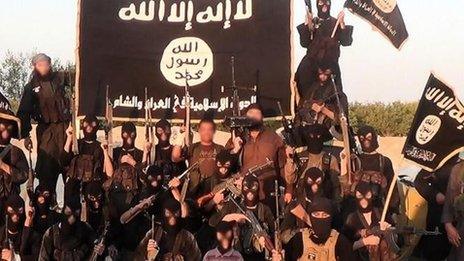
- Published24 April 2014
- Published22 June 2014
